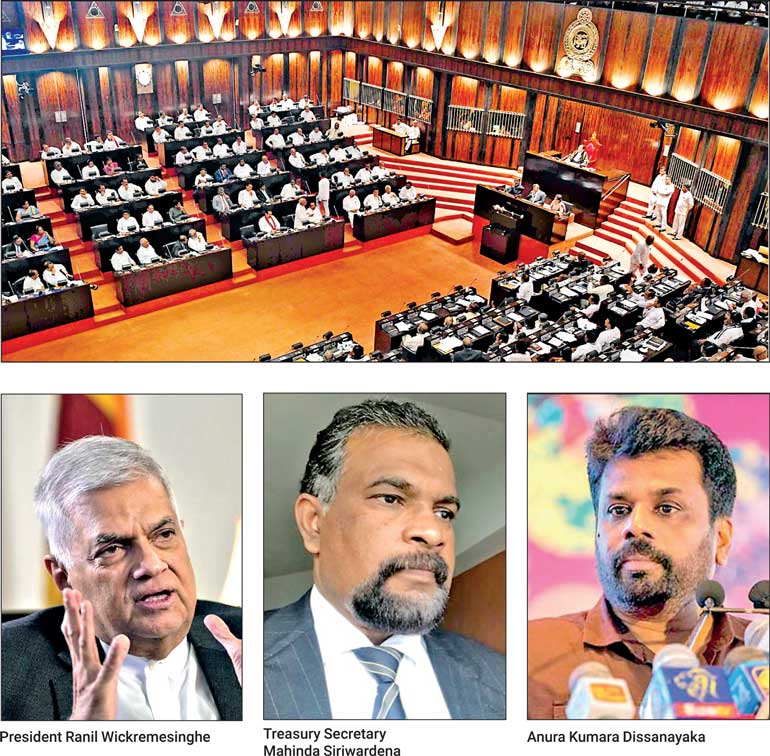Sunday Feb 15, 2026
Sunday Feb 15, 2026
Tuesday, 16 January 2024 00:10 - - {{hitsCtrl.values.hits}}

|
 “Alongside decayed roués with dubious means of subsistence and of dubious origin, alongside ruined and adventurous offshoots of the bourgeoisie, were vagabonds , discharged soldiers, discharged jailbirds, escaped galley slaves, rogues, mountebanks, lazzaroni, pickpockets, tricksters, gamblers, maquereaus, brothel keepers, porters, literati, organ-grinders, rag-pickers, knife-grinders, tinkers, beggars, in short, the whole indefinite, disintegrated mass, thrown hither and thither, which the French term, la boheme” -The Eighteenth Brumaire of Louis Bonaparte-Karl Marx
“Alongside decayed roués with dubious means of subsistence and of dubious origin, alongside ruined and adventurous offshoots of the bourgeoisie, were vagabonds , discharged soldiers, discharged jailbirds, escaped galley slaves, rogues, mountebanks, lazzaroni, pickpockets, tricksters, gamblers, maquereaus, brothel keepers, porters, literati, organ-grinders, rag-pickers, knife-grinders, tinkers, beggars, in short, the whole indefinite, disintegrated mass, thrown hither and thither, which the French term, la boheme” -The Eighteenth Brumaire of Louis Bonaparte-Karl Marx
No, in the above quote Marx was not describing the Sri Lankan Parliament!
In this instance, Marx’s searing analysis, couched in his accustomed vivacity, was directed at a French social class of early 19th century he describes as the ‘lumpen- proletariat’, which by and large had supported Louis Bonaparte in his quest for the Presidency of France in 1848.Three years later, in 1851, Bonaparte staged a coup d’etat, soaring above the class struggle, that was thought to be imminent. His ascendency despaired outstanding thinkers of the era like Victor Hugo and Karl Marx, who saw Louis Bonaparte as an imposter, a grotesque mediocrity playing the role of a hero.
It was inevitable that Bonaparte would invite comparisons to his epoch making uncle, Emperor Napoleon Bonaparte. Marx mocks the nephew’s (Louis Bonaparte) coup, comparing it with Napoleon Bonaparte’s coup of 1799 on Eighteenth Brumaire. Adopting German philosopher Hegel’s idea that world spirit causes the re-enactment of events, Marx opened his thesis with the celebrated line that history repeats, first as a tragedy (Emperor Napoleon) and then as a farce (nephew Louis Bonaparte). It is uncertain whether Marx accepted the Hegel aphorism as a historical truism, but in the case of Napoleon and his far less illustrious nephew, a telling line indeed.
For France, the 18th and 19th centuries were tumultuous; the land of revolutions, class wars, communes and Napoleon. Marx anticipated a triumphant revolution, but it did not evolve that way. Today France is a highly productive and prosperous country, boasting a vibrant cultural life. Like most western countries, high standards of living across the board have made class definitions and antagonisms meaningless. Uncommonly perceptive Marx may have been, but theoretical postulates must bow to obvious realities. As historian Fukuyama suggests, “history” as an unbroken chain of class struggles may not be tenable in context. That is not to say that human societies will remain static. In time, there is bound to be turmoil and even cataclysmic upheaval, but perhaps not quite on the lines as suggested by Karl Marx.
While the enormous validity of Marx is undeniable, it is also an important factor that his focus was primarily on Europe, then a melting pot of social, economic, national as well as religious ideas. These were years of incredible ferment; everything old was challenged, examined and reformed, if not discarded. Asia was a distant continent, backward and primitive, evoking only an occasional comment from Marx, often derisive. Weak societies, stuck in a mind-set of a bygone era; awash with dark superstitions, in the choking grasp of incompetent despots; they were in no position to resist the European colonisation
that ensued.
Almost every institution we now behold in this country, whether it be the parliament or the judiciary, medical profession or the constabulary, the game of cricket or political parties, owe their introduction to that colonial intrusion.
‘History’ may have ended, ‘races’ have not. In the modern world, certain “peoples” have proved themselves capable of running complex systems, building huge economies, expanding intellectual horizons, providing a high standard of living for its citizens, while at the same time, ensuring a sturdy democratic structure. The endless lines of hopefuls waiting at their door for a better life, is evidence enough of their success, and, a damning testimony to the failure of the feeder countries.
There are other races that have achieved some benchmarks, but not all; successfully building large economies and improving the life of their citizens, relative to the condition they were in before.
There is a third group, repeatedly going from tragedy to comedy, in an endless cycle; limited, inept and fundamentally corrupt. In these countries, in times when the State predominates, their systems are distinguished by corruption, incompetence and stagnation (SriLanka 1970-77). When their private sector comes to the fore, it is cronyism, exploitation and plunder, the free market interpreted by coarse temperaments, through their avaricious eyes
(Sri Lanka 1977 on)!
Whether it is State run or private sector heavy, the glaring truth is that Sri Lanka has one of the weakest industrial bases in Asia. Typically, we have clung on to garments, an industry with very little specialisation or innovation and one that keeps migrating to poorer economies (with poor wages) in order to be viable. If not for the plantations established more than two centuries ago, and our blue collar workers in the Middle East, the show would have ended much earlier.
Sri Lanka being a tiny economy, it is inevitable that most businesses are either suppliers or work contractors for the Government. Neither party needs tuition on what makes the system work!
The so called old elite, a comprador class created by the needs of the colonial era, has now given way to a new elite, a parvenu class. If the former were a tragedy, now we have the farce! They are unmistakable; in appearance undistinguished, the expensive designer brands and the contrived casualness sitting awkwardly on the essentially provincial character; ingratiating, self-promoting, slithery; our new rich have all the vices of the old, but none of their virtues! If the former attracted mockery, the latter invites
only anxiety.
We do not have an Asian Marx to vivisect the sorry mimic we have made of the adopted system. If there were to be, what he beholds would provide him endless scope for contempt. A lamentable scene, where every aspect of the adopted system is understood only partially, interpreted perversely and works in contradiction of its very purpose.
Sri Lankan politicians omniscient
Our Constitution is a good case in point. Once elected, Sri Lankan politicians become omniscient, the little matter of constitutional tinkering taken in their stride. With cavalier disregard for the consequences (Constitutions are generally rigid, resistant to change) they play at law making. Before the introduction of the 1978 Constitution its spiritual author JR Jayewardene advanced the case for a presidential system, arguing that Sri Lanka needed such a system to embark on our rapid development and that a President carrying a personal mandate from the people need not be deterred in that endeavour by the pressures and restrains that a parliamentary system would necessarily impose. Whatever the legal technicalities may be, the very constitution has now allowed an unelected person to be appointed by Parliament to that
position.
While a State needs tax revenue to meets its expenses, it is widely acknowledged that high taxes act as a disincentive to investment, and consequently, development. In Sri Lanka, it is money taken from a relatively efficient sector to an inefficient State, mainly to pay its debts and to keep afloat many white elephants in an overall unproductive sector. The most objectionable are the indirect taxes like the ‘VAT’ that leave a deep dent in the average purse, already reeling from the effects of a drastically devalued
currency.
And, this is a country where politicians are collecting millions in the guise of election funds, without receipts and without tax!
Taxes without legitimacy is oppression!
It is basic to the spirit of democracy that for a Government to impose taxes on the people, must first have a mandate to govern from the people. There cannot be taxation without representation. Leave aside the President, it is extremely doubtful whether the parliamentary majority today enjoys the trust and confidence of the people any longer. Democracy is not only the holding of periodic elections. For it to have any meaning, the true spirit of democracy must be alive in the hearts and minds of its putative practitioners. If we use the experiences of the past 70 years as a gauge, for these hearts and minds, democracy is just another business, a sure way of hogging the public stage.
When we began our new journey in 1948, there were high expectations. For 70 years we journeyed gaudily and noisily; 70 long years of bombast, phrase-mongering and grandstanding. Now that all this hoopla has ended in a messy train wreck, we see all our post 1948 leaders in true light; second rate men: empty characters with monstrous egos; men of small deeds and big talk.
Now, who pays for the cleaning up?
Not the wreckers of the country, not the beneficiaries from the sleaze, not those who enjoyed all the pageantry and the privileges of the State; the burden has fallen squarely on the millions of our impoverished citizens. Their unelected President demands it. Their elected representatives in Parliament have voted for it.